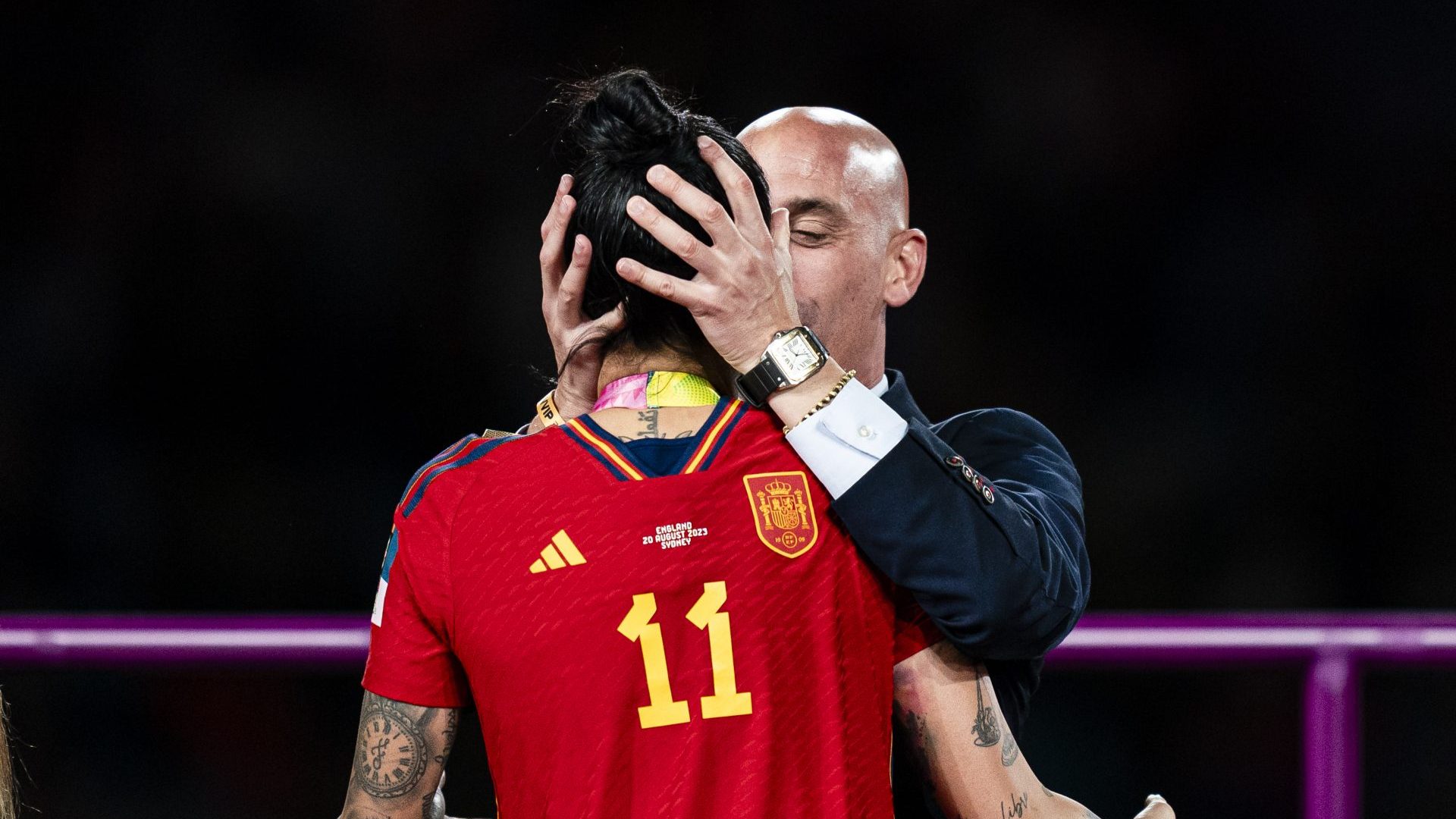Spanish women greeted the overdue resignation of Luis Rubiales as head of the Spanish FA with a weary nod of approval. Even women attending a feminist monologue in one of the most progressive neighbourhoods in central Madrid, Lavapiés, were tired of talking about him grabbing and kissing Jennifer Hermoso after last month’s World Cup win. “It’s too bad we’re talking about this instead of the World Cup victory,” says Cristina, 33, a civil servant. She had just been to see a performance of No solo duelen los golpes at the Teatro del Barrio.
The show, whose title means “It’s not just the hitting that hurts,” is a one-hander by the actor Pamela Palenciano about a controlling relationship and the sexist structures across society. One of Cristina’s companions at the show that night, Irene, a 35-year-old architect, told me that the kiss, which Hermoso says was not consensual, was inappropriate, and that “ten years ago, this wouldn’t have been news”. The difference, Irene said, was that Spain’s women have progressed. “The big change hasn’t been in men,” she said.
I sought out Palenciano and other Spanish women to ask what made the kiss news now, and what kind of milestone, if any, it might represent on Spain’s long march towards a more balanced society. First, the basic facts: on August 20 Spain’s women’s national football team won the World Cup, and afterward Rubiales embarrassed himself by gesturing between his legs and later kissing Hermoso on the mouth while in a receiving line to congratulate the team.
On August 26, Fifa provisionally suspended Rubiales from his role. His mother went on a three-day hunger strike in a local church in protest. There was talk that by hanging on to his role, Rubiales was jeopardising Spain’s joint bid with Portugal and Morocco to host the 2030 World Cup.
Earlier this month Hermoso filed a criminal complaint against Rubiales, which could lead to a prison sentence of up to four years, and Jorge Vilda was fired as head coach of the women’s team in response to accusations that he had tried to pressure Hermoso into defending Rubiales. Vilda denies this.
Finally, Rubiales quit in a TV interview with Piers Morgan. “Trying to hang on in hope of clinging on won’t result in anything positive for either the federation or Spanish football,” he said, after three weeks of doing just that.
So, could the furore now dissipate? “I think this affair, media-wise, is at its end,” said Teresa Nevado Bueno. She is secretary general of the European Women’s Lobby in Spain, a federation of civil society groups. While the attention may help to normalise football as an appropriate activity for women and girls, Nevado says, slower-moving changes in Spanish society have more lasting effects on feminism: “The two most important milestones are the 2004 law on gender violence and the 2007 gender equality law, and the next one is a state pact against gender violence, agreed to by all parties in 2017.”
Indeed, Spain last year ranked 6th in the EU on the Gender Equality Index, one place higher than in 2010, which suggests that Rubiales and Spanish football may be out of touch with Spain, rather than Spain being out of touch with feminism.
I spoke to Miriam Jiménez Lastra, an IT consultant and sociologist, who was a member of Atlético Madrid from the age of two – she gave it up not long ago. “I don’t go to the stadium any more,” she said. “I never felt safe as a woman.” Last month she went to protest outside the headquarters of Spain’s football federation, and to denounce not just Rubiales’s behaviour, but that of the institution itself. “The changes that have to happen are inside the institution,” she said. “Sexism isn’t so much a personal thing as a structural thing.”
“Feminism is already channelled politically. There’s a social consensus,” Jiménez said. After her on-stage performance, I asked Palenciano what she hopes will happen after the Rubiales affair blows over. “A lot of past feminist discussion has been towards young women, to teach them that they can go a long way, like these footballers have,” she said. “But now we need to talk to teenage males to teach them not to become a Rubiales.”



